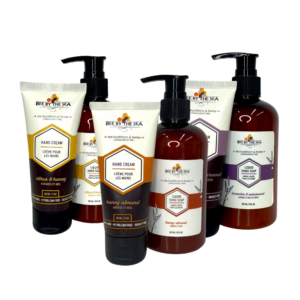The sun’s rays can be both beneficial and harmful. While sunlight provides essential vitamin D, it also emits ultraviolet (UV) radiation, which can damage the skin and lead to various health issues. Prolonged exposure to UV radiation increases the risk of skin cancer, premature aging, and other skin problems. This makes sunscreen a crucial component of any skincare routine.

The Role of Sunscreen in Skin Protection
Sunscreen acts as a shield against harmful UV rays by either absorbing or reflecting them away from the skin. It contains active ingredients that provide different levels of protection against UVA and UVB rays. UVA rays penetrate deep into the skin, causing premature aging and increasing the risk of skin cancer, while UVB rays primarily cause sunburn.
Choosing the Right Sunscreen: Tips According to Dermatologists
- Know Your Skin Type: Different skin types have varying degrees of sensitivity to sunlight. Individuals with fair skin are more susceptible to sunburn and require higher SPF (Sun Protection Factor) levels for adequate protection. On the other hand, darker skin tones have more natural protection against UV radiation but are still at risk of sun damage.
- Check the SPF: SPF indicates the level of protection a sunscreen offers against UVB rays. Dermatologists recommend using a broad-spectrum sunscreen with an SPF of at least 30 for everyday use. However, those who spend extended periods in the sun or have a history of skin cancer may require a higher SPF.
- Look for Broad-Spectrum Protection: UV radiation consists of both UVA and UVB rays, each with distinct effects on the skin. It’s essential to choose a sunscreen labeled as “broad-spectrum,” which provides protection against both types of rays.
- Water Resistance: If you’ll be swimming or sweating, opt for a water-resistant sunscreen to ensure continuous protection. However, keep in mind that no sunscreen is entirely waterproof, so reapplication is necessary after swimming or excessive sweating.
- Consider Your Activities: The type of sunscreen you choose may depend on your daily activities. For example, if you wear makeup, look for a lightweight, non-comedogenic formula that won’t clog pores. If you engage in outdoor sports or activities, choose a sunscreen specifically designed for athletes, which offers long-lasting protection even during intense physical exertion.
Conclusion
Choosing the right sunscreen is essential for maintaining healthy skin and reducing the risk of sun damage. By understanding your skin type, checking SPF levels, opting for broad-spectrum protection, considering water resistance, and taking your daily activities into account, you can select a sunscreen that meets your needs and keeps your skin safe from harmful UV rays. Stay tuned forwhere we’ll delve deeper into additional factors to consider when choosing the best skincare routine for your skin.
